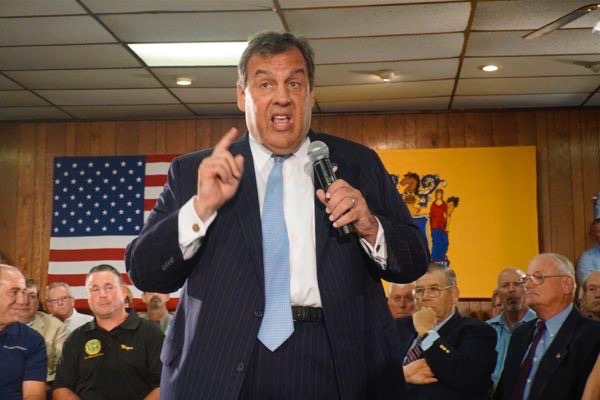Court Reaches An Absurd Legal Result
“Regulatory Choice” – no matter how corrupt – is exempt from federal fraud laws
Today, the US Supreme Court issued a decision in the appeals of convictions of Bridget Kelly and Bill Baroni in the Bridgegate scandal.
As the NY Times reports, the Court overturned the convictions, ruling that federal fraud laws do not cover what the court found was a mere exercise of what the Court called “regulatory choice“:
[Justice Kagan] went on to write that “the evidence the jury heard no doubt shows wrongdoing — deception, corruption, abuse of power.”
“But the federal fraud statutes at issue do not criminalize all such conduct,” she wrote. “Under settled precedent, the officials could violate those laws only if an object of their dishonesty was to obtain the Port Authority’s money or property.”
And, she wrote, “the realignment of the toll lanes was an exercise of regulatory power — something this court has already held fails to meet the statutes’ property requirement.” […]
Anti-corruption laws, the court has indicated in the McDonnell case and others, were meant to cover only classic bribery and kickbacks. […]
“Justice Kagan wrote that the defendants had given false reasons for their actions, but that lying by government officials was not by itself a federal crime. The lies must also result in “obtaining money or property”.
The Court downplayed the implications of the exercise of regulatory power, essentially distinguishing it from “money or property”.
But that is a false distinction betrayed by abundant facts. The exercise of “regulatory choice” obviously legally is a “thing of value”.
I have spent a 40 year academic and professional career working on “regulatory policy” and what the Court describes as “regulatory choice”.
I can assure you that “regulatory choice” has incredibly large economic, social, environmental, property and political impacts and that these impacts can be and are monetized.
In fact, corporations routinely sue governments for exercises of “regulatory choice” as “takings of private property” in violation of the Constitution’s “takings” clause in the 5th Amendment to the US Constitution.
In fact, there is an entire field of academic and applied economics of the methodology known as “cost-benefit analysis” that seeks to quantify and monetize the economic impacts of “regulatory choice” (phone call for Cass Sunstein):
OIRA under Cass Sunstein has continued to serve as a conduit for industry attacks on environmental, health and safety regulations, often substituting the scientific judgment of its inexpert staff for that of the agencies themselves, and it has persisted in imposing a deeply flawed cost-benefit analysis, all while slowing down an already glacial regulatory process. In short, the Obama Administration’s OIRA has functioned very much like the Bush OIRA, serving largely as as an impediment to vigorous regulation.
In fact, politicians spend incredible sums of money to attain office and be able to exercise official powers of “regulatory choice“.
Day to day politics routinely involves using “regulatory choice” to reward friends and sometimes to punish foes. Sometimes those exercises are corrupt.
In fact, corporations spend millions of dollars in direct campaign contributions and in lobbying to influence the exercise of “regulatory choice” by government officials (e.g. see: This Is What Regulatory Capture Looks Like).
In fact, many government officials have gone to jail for accepting bribes and kickbacks in the exercise of “regulatory choice” in ways that benefit specific individuals and companies that paid the bribes (Google the criminal conviction of NJ Assemblyman Van Pelt).
So, for the Supreme Court to categorically exclude the exercise of “regulatory choice” from federal fraud laws – on the basis that it does not involve “money or property” – is absurd.
And let me offer this specific illustration of exactly that kind of corruption of “regulatory choice” and show how it involved perhaps billions of dollars.
This corruption was uncovered during the Bridegate investigation, and has gotten very little media coverage:
In this case, Gov. Christie used DEP’s “regulatory choice” powers as leverage in a political deal with the Mayor of Hoboken and the Rockefeller Development Corporation.
That “regulatory choice” too is a corrupt abuse of power. It was a “choice” that sought to confer huge economic and political benefits on specific individuals and corporations for corrupt reasons.
And it shows why exclusion of regulatory power from fraud laws is absurd.
“Regulatory choice” can kill you – whether it’s an ambulance blocked in GWB Bridgegate traffic, or “regulatory choices“allowing unacceptable levels of chemicals in your drinking water, food, or air – or extraordinarily hazardous chemical storage in your neighborhood.
Congress now must act to strengthen federal fraud and corruption laws by making them apply to corrupt forms of “regulatory choice”.

